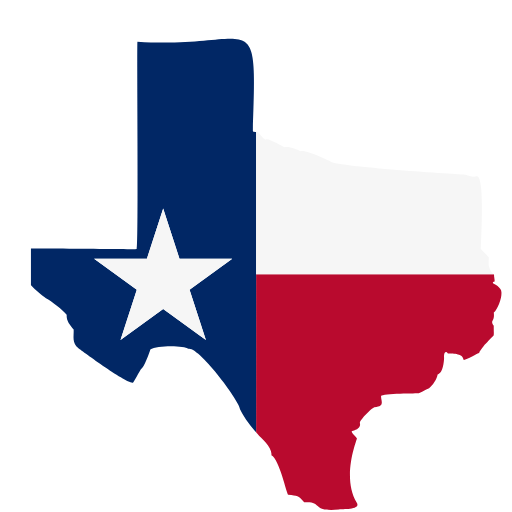Customer Relationship Management, or CRM, tools have become indispensable for small businesses seeking to organize their customer information, streamline their sales processes, and enhance communication.
These tools not only help in managing contacts but also provide valuable insights into customer behavior, enabling personalized interactions that can lead to increased sales and improved customer loyalty.
With the rise of digital interactions, a robust CRM system allows small businesses to keep pace with market demands and customer expectations, making it a critical component of modern business strategy.
Check out this article to see our top small business CRM to increase sales.

For small businesses, choosing the right CRM tool involves understanding the unique needs of the business and the features that will be most beneficial. A CRM that offers scalability and flexibility while being user-friendly can have a profound impact on the efficiency of the business operations. It’s not just about managing customer data; it’s about leveraging that data to create meaningful relationships and drive business growth. Additionally, with a variety of options available in the market, from simplistic models to complex systems with advanced analytics and automation, small businesses must navigate through the choices to find an optimal solution that aligns with their goals and budget constraints.
Key Takeaways
- CRM tools are essential for managing customer data and improving sales and loyalty.
- Choosing the right CRM requires an understanding of your business’s specific needs.
- The ideal CRM should be scalable, user-friendly, and align with your business objectives.
Understanding CRM Tools
In this section, you’ll discover what CRM tools are and how they can benefit your small business by streamlining customer interactions and driving growth.
Definition and Purpose of CRM
Customer Relationship Management (CRM) software is a suite of applications designed to manage your business’s interactions with current and potential customers. Its primary purpose is to organize, automate, and synchronize sales, marketing, customer service, and technical support.
Benefits of CRM for Small Business
- Efficiency: A CRM can automate routine tasks, freeing up time for more valuable activities.
- Sales Process Optimization: By using CRM tools, you can track customer interactions and sales progress, leading to more effective sales strategies and practices.
- Data Management and Accessibility: Maintain a centralized database of customer information that is accessible to your team, enhancing communication and customer service.
- Customer Insights: Gain valuable insights into customer behavior and preferences, enabling you to tailor your offerings to meet your customers’ needs more precisely.
Using CRM software, your small business can enhance customer relationships, increase sales, and improve customer retention through more personalized and targeted communication.
Key Features to Look for in CRM Tools

When selecting CRM tools, it’s essential to consider specific features that can streamline your business operations and enhance customer relationships.
Contact Management
Your CRM tool should offer robust contact management capabilities. This includes storing customer data, interaction history, and social media profiles in one accessible location. It allows you to efficiently organize and segment contacts for targeted marketing campaigns.
Sales Pipeline Management
Look for a CRM that provides clear sales pipeline management. This will help you track stages of deals, potential revenue, and tasks associated with closing new business. Visual sales pipelines give you an immediate overview of your sales activities.
Task and Activity Tracking
Effective task and activity tracking within a CRM ensures nothing falls through the cracks. You can assign tasks, set deadlines, and monitor progress to keep the entire team on track with their daily activities and customer follow-ups.
Email Integration and Tracking
CRMs with email integration and tracking save time by syncing with your email service. This lets you send, receive, and track correspondence within the CRM. Some systems also offer insights into email open rates and click-through rates, crucial for refining your email marketing strategies.
Document Management
Document management allows for central storage and easy retrieval of sales materials, contracts, proposals, and collateral. Having these resources directly in the CRM eliminates the need for external storage solutions and speeds up the sales process.
Analytics and Reporting
Choose a CRM with comprehensive analytics and reporting functionalities. These can provide valuable insights into sales trends, campaign effectiveness, and overall business performance, helping you to make data-driven decisions for your company’s growth.
Choosing the Right CRM Tool
Selecting the appropriate CRM software is vital for managing your customer relationships effectively. Understanding your business requirements, how the CRM can grow with your company, the ease of use, integration with other tools, and budgeting will be crucial to your decision.
Assessing Your Business Needs
Before exploring CRM options, identify the specific needs of your business. Are you focusing on lead management, sales tracking, customer support, marketing, or a combination? The Best CRM Software For Small Business (January 2024) – Forbes suggests evaluating your primary objectives to ensure the CRM capabilities align with your business goals.
Scalability and Customization
Your chosen CRM should not only meet current needs but also grow with your business. Look for systems that offer a high degree of customization & scalability, such as those highlighted by Zoho CRM, to adapt to your evolving business environment.
User Experience and Support
User-friendly interfaces lead to higher adoption rates among your team. Prioritize CRM software reviewed by U.S. News for its excellent user experience. Additionally, consider the level of customer support provided, such as available training resources and customer service responsiveness.
Integration Capabilities
Select a CRM that integrates smoothly with your existing tools and workflows. As recommended by the CRM.org article on the Best CRM for Small Business Compared 2023, ensure the software can connect with email, calendar apps, marketing automation, and other essential systems.
Cost Considerations
Finally, evaluate the cost of each CRM tool. This includes subscription fees, costs of additional users, and potential expenses for extra features or future upgrades. For budget-conscious businesses, HubSpot Blog’s article on CRM Software for Small Business emphasizes finding a tool with a robust yet basic entry point that can scale as your budget grows.
Implementation Strategies
An effective CRM tool is more than software; it’s a cornerstone for customer interaction and business growth. Your focus should be on streamlining the implementation to ensure usability and quick adoption.
Training and Employee Adoption
Training is crucial for ensuring your team can fully utilize the CRM tool. Choose a CRM with a user-friendly interface and plan a structured training program that addresses different learning styles and schedules. Set goals using methods like SMART to keep your objectives clear and achievable.
Data Migration
Data migration is a sensitive phase. Begin by cleansing existing data to avoid transferring outdated or redundant information. Ensure that the transfer is secure and comprehensive, with a detail-oriented approach to mapping out data fields from your old system to the new CRM.
Setting up Workflows
Optimize your business processes by configuring CRM workflows to align with your sales cycle and customer service protocols. Customizations should reflect your business’s unique needs to facilitate task automation and efficiency, freeing up your team to focus on building customer relationships.
Popular CRM Tools for Small Business
Selecting the right CRM platform can greatly enhance your customer relations and streamline business processes. This section provides a clear comparison of top platforms and shares real-world successes to inform your choice.
Comparison of Top CRM Platforms
The CRM market offers a variety of tools tailored to meet the needs of small businesses. Zoho CRM stands out for startups with its scalability and customizable features. Another versatile platform, monday.com, is highly regarded for its team collaboration capabilities. For lead management, FreshSales has proven effective with its robust automation and analytics tools. Lastly, Salesforce is known for being the most comprehensive solution, offering an extensive suite of features for customer relationship management.
| CRM Platform | Best For | Base Pricing | Noteworthy Features |
|---|---|---|---|
| Zoho CRM | Startups | Offers a free version | Customization, scalability |
| monday.com | Teams | Custom quote required | Team collaboration tools |
| FreshSales | Lead management | Available upon request | Lead scoring, email tracking |
| Salesforce | Comprehensive solution | Custom quote required | Extensive suite, AI features |
Case Studies and Success Stories
Understanding the practical impact of CRM tools can guide your decision. For example, Less Annoying CRM has been ranked highly for its simplicity and effectiveness for smaller businesses, providing a case study in user-friendly design without sacrificing core functionalities. Vtiger CRM has also received recognition for being an all-in-one solution that manages contacts, deals, inventory, and more within a streamlined interface. These success stories showcase CRM platforms driving real business growth and customer satisfaction.
Maximizing CRM Tool Benefits
To fully leverage your CRM software, it’s essential to employ well-crafted strategies, maintain the tool effectively, and measure how your investments translate into returns.
Best Practices in CRM Utilization
Strategic Use: Begin with defining clear goals for your CRM and align these with your business strategy. This ensures that the CRM works towards actual business outcomes such as increased sales or improved customer service. For instance, implementing a CRM to centralize customer information could enhance your customer service by providing more personalized interactions.
Staff Training: Investing in comprehensive training programs for your team can maximize the effectiveness of the CRM tool. For example, Zoho CRM is considered best for startups, partially due to its user-friendly interface which can be fully utilized with proper training.
Regular Maintenance and Updates
Data Cleaning: Keep your CRM database clean by regularly removing outdated information which can help increase accuracy in reporting and analytics.
Software Updates: Stay updated with the latest CRM software versions. Tools like FreshSales are known for their lead management capabilities which are continuously improved upon in new updates, ensuring you don’t miss out on new features that could enhance your sales process.
Measuring CRM ROI
Performance Metrics: Track specific metrics that reflect the CRM’s impact on your business. This could include lead conversion rates, customer retention rates, and customer satisfaction levels.
Revenue Impact: Calculate the revenue gained from using the CRM by looking at new sales attributed to the CRM, and compare this against the cost of the software and operations. Tools with comprehensive features like Salesforce often offer advanced analytics that allows you to gauge the ROI more precisely.
Frequently Asked Questions

These questions aim to equip you with a foundational understanding of CRM systems, their importance for small businesses, and considerations for selecting the right one.
Why should a small business have a CRM?
A CRM, or customer relationship management system, helps you streamline your customer interactions, sales tracking, and communications, making it a vital tool for managing growth effectively.
What does CRM stand for?
CRM stands for Customer Relationship Management. It’s software designed to help businesses manage interactions with current and potential customers more efficiently.
What features should a CRM for small business include to ensure maximum efficiency?
To ensure maximum efficiency, your CRM should offer contact and lead management, sales forecasting, workflow automation, and the ability to generate reports and insights.
How can CRM software improve customer relations for a small or service-based business?
CRM software can enrich customer relations by providing personalized communication, timely follow-ups, and better handling of customer inquiries and support requests.
What are the most cost-effective CRM solutions available for small businesses seeking value?
Cost-effective CRM solutions include options like Zoho CRM and Freshworks CRM, which offer free versions and scalable plans for growing businesses.
What factors should a small business consider when choosing a CRM to manage their sales pipeline?
When selecting a CRM for your sales pipeline, consider ease of use, customization, integration capabilities with other tools, and whether the CRM can scale with your business growth.

